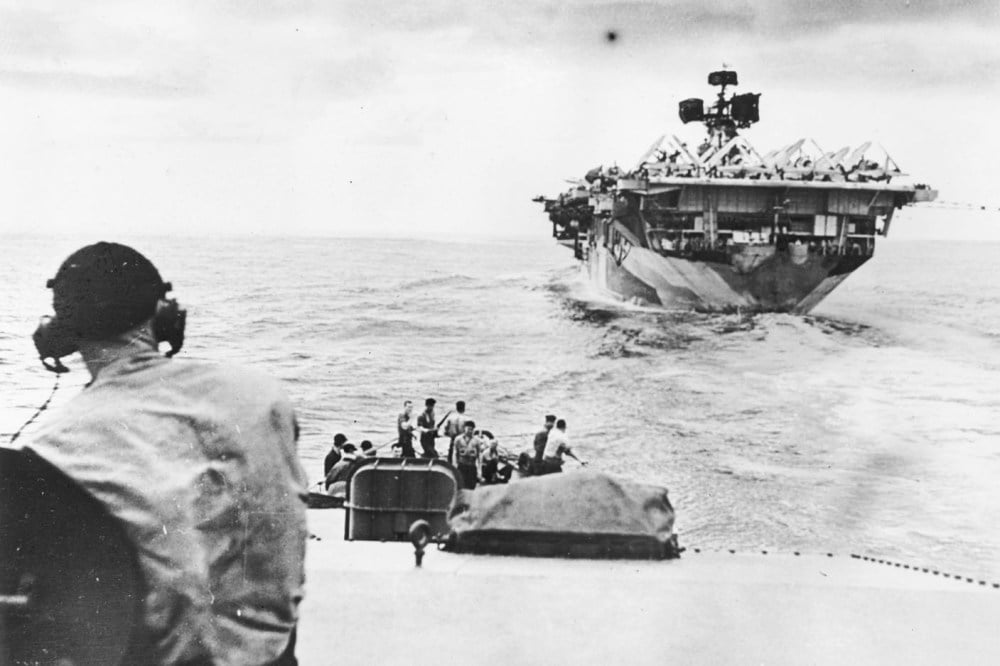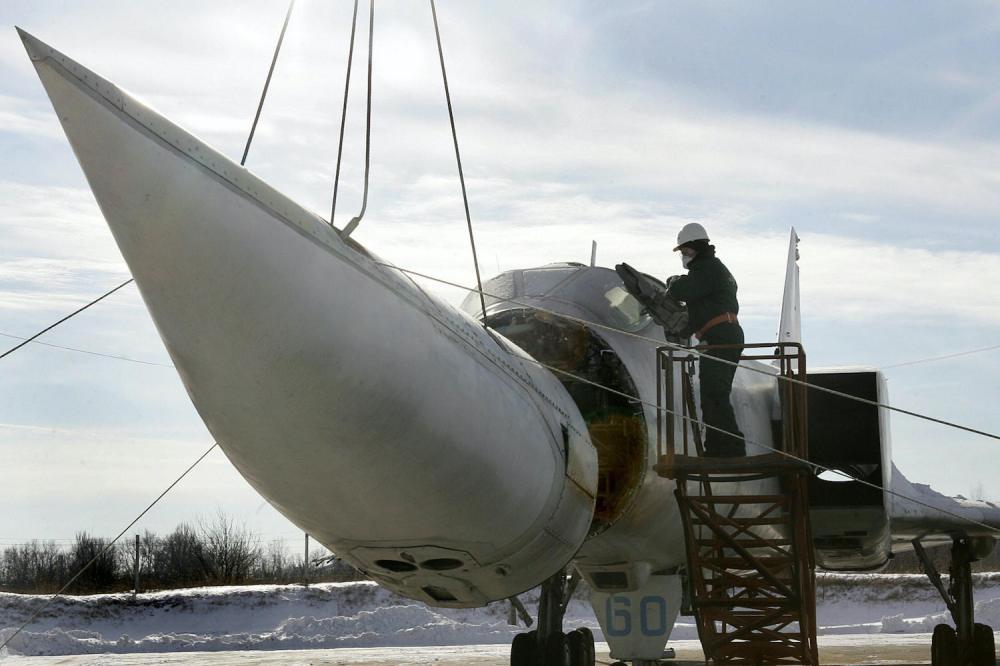I would say we did contribute to the breakup of the Soviet Union, but we were not the sole cause.There is no one to blame for this crises other than Russia and Putin himself. We didn't break up the Soviet Union, we didn't start the 'Color Revolutions', we didn't start the Maidan protests and we sure as hell aren't building up over a hundred thousand troops on the Russian or Ukrainian borders.
So screw Russia and whatever bullshit excuses they come up with to justify an invasion of Ukraine.
-
Please take a moment and update your account profile. If you have an updated account profile with basic information on why you are on Air Warriors it will help other people respond to your posts. How do you update your profile you ask?
Go here:
Edit Account Details and Profile
You are using an out of date browser. It may not display this or other websites correctly.
You should upgrade or use an alternative browser.
You should upgrade or use an alternative browser.
What are you reading?
- Thread starter Recovering LSO
- Start date
I didn't know America wasn't still a superpower.Paul Kennedy has a new book that looks interesting- has anybody had a chance to read it yet?
View attachment 35172
Victory at Sea: Naval Power and the Transformation of the Global Order in World War II
Victory at Sea: Naval Power and the Transformation of the Global Order in World War II: Kennedy, Paul, Marshall, Ian: 9780300219173: Amazon.com: Books
Victory at Sea: Naval Power and the Transformation of the Global Order in World War II [Kennedy, Paul, Marshall, Ian] on Amazon.com. *FREE* shipping on qualifying offers. Victory at Sea: Naval Power and the Transformation of the Global Order in World War IIwww.amazon.com
And a review from Foreign Policy Magazine:

The Navy Made America a Superpower Once. Can It Again?
Paul Kennedy made his name bemoaning America’s decline. Now, he highlights a way to reverse it.foreignpolicy.com
Happened to see this interview with Henry Kissinger by historian Niall Ferguson. Hard to believe he is 99 years old.

 www.thetimes.co.uk
www.thetimes.co.uk
Henry Kissinger at 99: how to avoid another world war
In other words, Cold War II is potentially even more dangerous than Cold War I? Kissinger’s answer is yes, because both superpowers now have comparable economic resources (which was never the case in Cold War I) and the technologies of destruction are even more terrifying,

Henry Kissinger at 99: how to avoid another world war
Henry Kissinger turned 99 on May 27. Born in Germany at the height of the Weimar hyperinflation, he was not yet ten years old when Hitler came to power and was
Henry Kissinger at 99: how to avoid another world war
The Cold War statesman on Putin, China and our new moment of peril
“Two countries with the capacity to dominate the world” — the US and China — “are facing each other as the ultimate contestants. They are governed by incompatible domestic systems. And this is occurring when technology means that a war would set back civilisation, if not destroy it.”In other words, Cold War II is potentially even more dangerous than Cold War I? Kissinger’s answer is yes, because both superpowers now have comparable economic resources (which was never the case in Cold War I) and the technologies of destruction are even more terrifying,
Even harder to believe anyone still cares about anything he says.Happened to see this interview with Henry Kissinger by historian Niall Ferguson. Hard to believe he is 99 years old.

Henry Kissinger at 99: how to avoid another world war
Henry Kissinger turned 99 on May 27. Born in Germany at the height of the Weimar hyperinflation, he was not yet ten years old when Hitler came to power and waswww.thetimes.co.uk
Henry Kissinger at 99: how to avoid another world war
The Cold War statesman on Putin, China and our new moment of peril
“Two countries with the capacity to dominate the world” — the US and China — “are facing each other as the ultimate contestants. They are governed by incompatible domestic systems. And this is occurring when technology means that a war would set back civilisation, if not destroy it.”
In other words, Cold War II is potentially even more dangerous than Cold War I? Kissinger’s answer is yes, because both superpowers now have comparable economic resources (which was never the case in Cold War I) and the technologies of destruction are even more terrifying,
“Two countries with the capacity to dominate the world” — the US and China — “are facing each other as the ultimate contestants. They are governed by incompatible domestic systems. And this is occurring when technology means that a war would set back civilisation, if not destroy it.”
In other words, Cold War II is potentially even more dangerous than Cold War I? Kissinger’s answer is yes, because both superpowers now have comparable economic resources (which was never the case in Cold War I) and the technologies of destruction are even more terrifying,
Kissinger is a pretty hard core realist whose views are no longer in sync with many of the realities of current American foreign policy. While some of the policies he still advocates were probably necessary in some cases during the Cold War, times have changed not only for our country but the rest of the world as well.
I know we are talking "realist" as it pertains to a foreign policy as a concept or view of the foreign policy landscape, but it still seems insane one would reject a realistic point of view over the most commonly held alternative, "idealism".
I know we are talking "realist" as it pertains to a foreign policy as a concept or view of the foreign policy landscape, but it still seems insane one would reject a realistic point of view over the most commonly held alternative, "idealism".
I think it is healthy to have a good mix of both when it comes to foreign policy, striving to an ideal while accepting the reality of how the world works and having to work with some countries that are less than desirable. The problem I have with Kissinger's worldview is that it is pretty close to absolute 'realist' as one can get, not only for being cruel and indifferent to millions of people but also ignoring some of the realities of the world today to include the assertion of self-determination by many more countries than in his heyday.
To accept some sort of Russian or Chinese hegemony over certain countries while ignoring their own wishes smacks of 'peace in our time' and the Munich Agreement, not only giving a short shrift to tens of millions of folks striving to live as they choose but doing little to nothing to appease the expansionist policies of the aforementioned countries.
If one country realistically thought we would start a war to defend another country, based on idealism or not, that would absolutely be pulled into their decision making.I know we are talking "realist" as it pertains to a foreign policy as a concept or view of the foreign policy landscape, but it still seems insane one would reject a realistic point of view over the most commonly held alternative, "idealism".
A lot of wars start because of missed or misinterpreted signaling.
Interesting article from Stephen Walt on Realism as foreign policy.I know we are talking "realist" as it pertains to a foreign policy as a concept or view of the foreign policy landscape, but it still seems insane one would reject a realistic point of view over the most commonly held alternative, "idealism".

Why Do People Hate Realism So Much?
The school of thought doesn’t explain everything—but its proponents foresaw the potential for conflict over Ukraine long before it erupted.
Why Do People Hate Realism So Much?
The school of thought doesn’t explain everything—but its proponents foresaw the potential for conflict over Ukraine long before it erupted.
Interesting article, I agree with much of it especially the focus on how deeply some intellectuals disregard the realist school. Still, the realists have had their errors and mistakes and while their observations are typically based on historical models, they occasionally stop that history at a convenient time to match their theory (Vietnam is a perfect example).Interesting article from Stephen Walt on Realism as foreign policy.

Why Do People Hate Realism So Much?
The school of thought doesn’t explain everything—but its proponents foresaw the potential for conflict over Ukraine long before it erupted.foreignpolicy.com
Why Do People Hate Realism So Much?
The school of thought doesn’t explain everything—but its proponents foresaw the potential for conflict over Ukraine long before it erupted.
surprised there isn't greater enthusiasm for realpolitik, considering that that seems to be what a large portion of the population express a desire for
Realpolitk can also be very cruel and most Americans generally don't want to be assholes or enthusiastically support assholes when it comes to foreign policy. It is necessary much of the time? Sure, but we aren't going to be happy about it most of the time.
We also have a strong strain of trying to do what is 'right' in our foreign policy as well, it doesn't always get as much recognition as it should be it has been a pretty common theme of our foreign policy across both parties for decades.
Blind Landings - Low Visibility Operations in American Aviation 1918-1958
John Hopkins Press
A very interesting technical history of the development of instrument flying techniques and procedures. From early mail service smoke pots, to airways defined by rotating beacons to radio range to early attempts at a localizer.
The book spends most of its content over the competition between emerging technologies that became GCA and the modern localizer/ILS. And ultimately how the airlines rejected the GCA/PAR.
Good read - pool side. Again, no P in the ool @mad dog

John Hopkins Press
A very interesting technical history of the development of instrument flying techniques and procedures. From early mail service smoke pots, to airways defined by rotating beacons to radio range to early attempts at a localizer.
The book spends most of its content over the competition between emerging technologies that became GCA and the modern localizer/ILS. And ultimately how the airlines rejected the GCA/PAR.
Good read - pool side. Again, no P in the ool @mad dog

Ummm…you put P in the ool…bolded and underlined above. Attention to detail, candidate.Good read - pool side. Again, no P in the ool @mad dog
Walter Russell Meade who writes in Foreign Affairs describes the 4 variants of American foreign policy as Hamiltonian, Wilsonian, Jeffersonian and Jacksonian with the first 2 being globally orientated and the basis of US policy from WW2 to the election of President Trump, which he categorized as Jacksonian.Interesting article, I agree with much of it especially the focus on how deeply some intellectuals disregard the realist school. Still, the realists have had their errors and mistakes and while their observations are typically based on historical models, they occasionally stop that history at a convenient time to match their theory (Vietnam is a perfect example).
Any thoughts?
